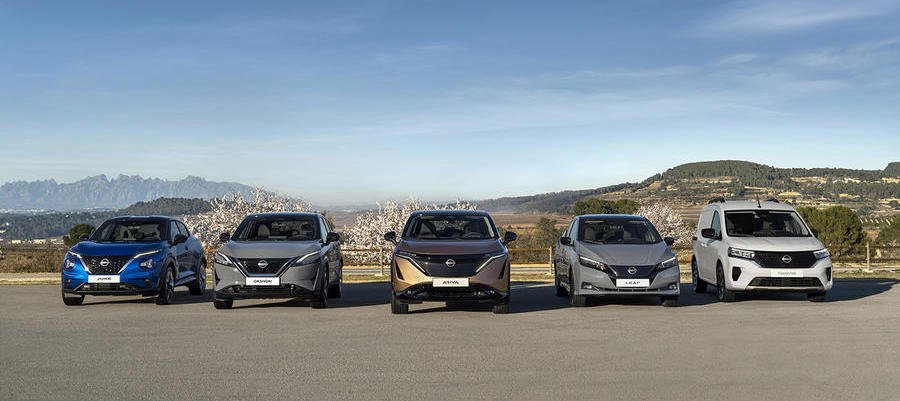The Vehicles That Plot Nissan's Course Toward Complete Electrification

Following the Dieselgate scandal that revealed systemic emissions cheating throughout the automotive industry, lawmakers decided that enough it’s enough. The Euro 7 standard is expected to be implemented from 2025 with a tremendous fleet-wide target for CO2 emissions, which explains why Ford intends to launch seven electric vehicles by 2024 with Volkswagen’s help.
Ford has also promised to drop internal combustion altogether in the Old Continent by 2030. Nissan, by comparison, aims for electrified vehicles to account for 75 percent of sales in the EU by 2026. The Japanese automaker decided against investing in Euro 7 for passenger cars by not introducing new pure internal combustion-engined automobiles in Europe from 2023.
Reliability is on a downward spiral ever since Nissan hooked up with Renault, which is why declaring war on internal combustion automobiles can be alternatively seen as good news. But in order to achieve the aforementioned targets, the Japanese automaker had to take some bold steps to ensure a smooth transition from internal combustion to zero emissions.
“We have established a clear direction through Ambition 2030, and with our new electrified lineup, we are truly paving the way to a sustainable future," declared Guillaume Cartier, chairperson for the AMIEO regions.
The lineup that Guillaume is referring to starts with the Juke, the second-most affordable Nissan passenger car in the European Union. For 2020, the subcompact utility vehicle has been gifted with Renault E-Tech goodies.
A full-hybrid setup that combines a 1.6-liter engine with a small electric motor, this fellow also features a 15-kW starter generator and a 1.2-kWh battery. The multi-modal gearbox is probably the most interesting element of the bunch, for it uses clutches instead of synchro rings to shift four ICE gears and two electric gears. Oh, and by the way, it doesn’t use a clutch.
The next level of electrification is represented by the Qashqai e-Power and X-Trail e-Power. These crossovers both feature internal combustion engines, but as opposed to conventional hybrids, they are used exclusively to generate electricity. The powerplant always runs within its optimal range, translating to great fuel efficiency and low emissions according to Nissan.
Dubbed Rogue Sport in the United States of America, the Qashqai with this Chevrolet Volt-inspired powertrain is only available with front-wheel drive. Total system output is quoted at 190 ps (188 horsepower) and 330 Nm (243 pound-feet) of torque, which is good enough for a compact-sized utility.
Marketed as the Rogue stateside, the X-Trail with e-Power shenanigans takes a slightly different approach. More specifically, the Japanese outfit waxes lyrical about the dual-motor setup that bears the e-4orce moniker.
With more than 577,000 units delivered globally since its 2010 launch, the Leaf is nothing to write home about because it feels outdated compared to the competition. Still equipped with a twist-beam rear axle, the compact hatchback promises 385 kilometers (239 miles) from a 62-kWh pack.
Marking the next chapter in the company’s electrification plan, the Ariya is based on the CMF-EV platform shared with the Renault Megane E-Tech Electric. Offered with front- and all-wheel drive, the Japanese twin can be driven up to 500 kilometers (311 miles) between charges as per Nissan.
Last, but certainly not least, we have to mention the Townstar EV. Essentially a replacement for the e-NV200, this van features a similar footprint to the Renault Kangoo E-Tech Electric. A 44-kWh battery pack should offer the newcomer a range of up to 285 kilometers (177 miles).
"This is a landmark moment for Nissan in Europe with the arrival of our most comprehensive product offering to date. We have harnessed our disruptive nature and our electric expertise to deliver a suite of electrified powertrain technologies that meet the needs of our customers, with zero compromise on excitement,” signed off chairperson Guillaume Cartier.
Related News
